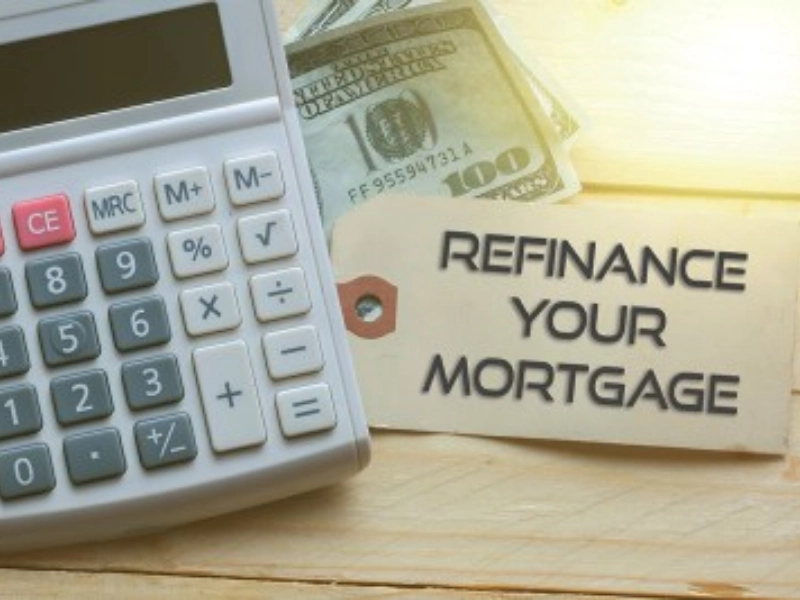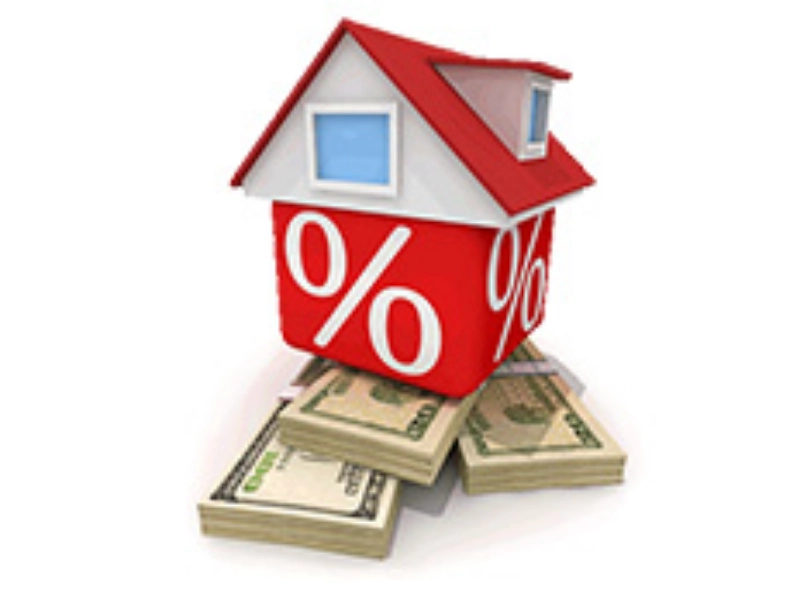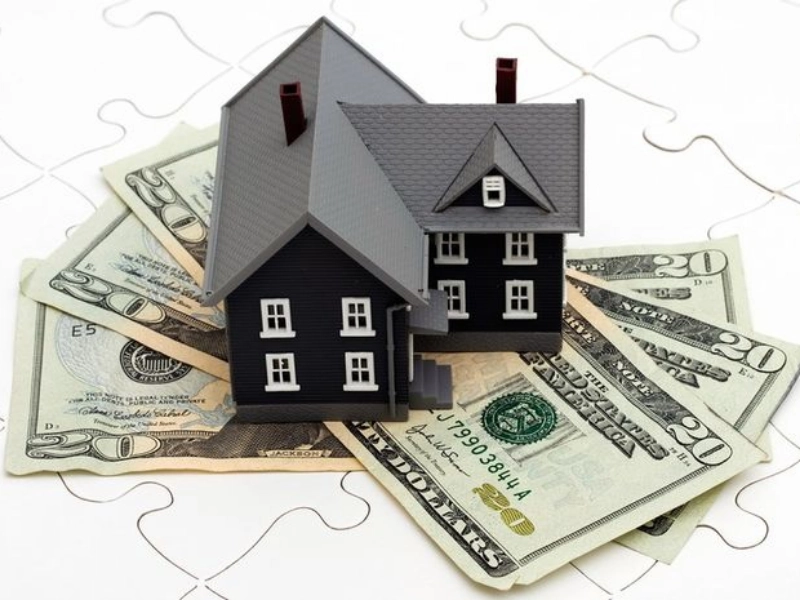Refinancing your mortgage might change the type of loan, the period of the loan, or the interest rate. To be sure refinancing makes sense for you, it's crucial to carefully consider your options. Be mindful of closing expenses like taxes, title insurance, credit checks, and appraisals that could cancel out any possible savings. Don't forget to account for outside influences, such as changes in interest rates.

 A common approach to managing debt is to apply for debt consolidation loans, which enable you to combine your financial commitments into a single loan with a reduced interest rate. To consolidate your debt, you can take out a home equity loan or line of credit (HELOC) or refinance your mortgage. But it's crucial to realise that refinancing a mortgage requires an underwriting procedure, and that in order to get the best terms, your borrower profile—which includes your income, credit, and finances—must be strong.
If you have sufficient home equity to pay off your obligations and get your financial situation under control, then refinancing your mortgage to consolidate your debts may make sense. But be advised that refinancing closing charges might mount up and offset the advantages of a mortgage refinance for debt reduction. You run the risk of losing some of the equity in your home, which could restrict your future financial options. You can assess your objectives and decide whether mortgage loan refinancing for debt consolidation is the best option for you with the assistance of a qualified mortgage consultant.
A common approach to managing debt is to apply for debt consolidation loans, which enable you to combine your financial commitments into a single loan with a reduced interest rate. To consolidate your debt, you can take out a home equity loan or line of credit (HELOC) or refinance your mortgage. But it's crucial to realise that refinancing a mortgage requires an underwriting procedure, and that in order to get the best terms, your borrower profile—which includes your income, credit, and finances—must be strong.
If you have sufficient home equity to pay off your obligations and get your financial situation under control, then refinancing your mortgage to consolidate your debts may make sense. But be advised that refinancing closing charges might mount up and offset the advantages of a mortgage refinance for debt reduction. You run the risk of losing some of the equity in your home, which could restrict your future financial options. You can assess your objectives and decide whether mortgage loan refinancing for debt consolidation is the best option for you with the assistance of a qualified mortgage consultant.
 By combining high-interest debt into a new mortgage with a lower interest rate, mortgage loan refinancing can assist consumers in paying down high-interest debt, such as credit card liabilities. In addition to helping homeowners recover control over their finances, this can save them money on monthly payments. Furthermore, a home mortgage's interest is typically tax-deductible.
Refinancing to lower debt, however, should only be done when you can assure yourself that you won't fall back into the same borrowing pattern that brought you to your current debt burden and when your finances are steady. For people who wish to achieve other financial objectives and raise their savings, refinancing may also be a wise decision.
With a cash-out refinance, you can use the difference between your current mortgage and the new, larger one to pay off other obligations or put towards a project. By doing this, you may be able to reduce your borrowing costs and raise your credit utilisation ratio, which may help you get approved for more loans or credit in the future.
By combining high-interest debt into a new mortgage with a lower interest rate, mortgage loan refinancing can assist consumers in paying down high-interest debt, such as credit card liabilities. In addition to helping homeowners recover control over their finances, this can save them money on monthly payments. Furthermore, a home mortgage's interest is typically tax-deductible.
Refinancing to lower debt, however, should only be done when you can assure yourself that you won't fall back into the same borrowing pattern that brought you to your current debt burden and when your finances are steady. For people who wish to achieve other financial objectives and raise their savings, refinancing may also be a wise decision.
With a cash-out refinance, you can use the difference between your current mortgage and the new, larger one to pay off other obligations or put towards a project. By doing this, you may be able to reduce your borrowing costs and raise your credit utilisation ratio, which may help you get approved for more loans or credit in the future.
 Utilising the historically low mortgage rates is a terrific method to reduce your monthly payments and potentially save on interest costs. To be sure that the upgrades will raise the value of your house enough to cover the cost of borrowing, it's crucial to consult with an appraiser or real estate agent if you intend to use your refinance to finance home improvements.
In the event that you choose to refinance for home repair, a cash-out refinance is frequently more economical than using credit cards or personal loans, which frequently have far higher interest rates. A FHA 203k loan or a home equity loan can also be an option for you if you want to finance renovations and raise the overall worth of your house.
When you weigh your options and consider your particular situation, refinancing might be a wise financial move. Examine your income, savings, and credit before refinancing to see if the advantages will outweigh the disadvantages.
Utilising the historically low mortgage rates is a terrific method to reduce your monthly payments and potentially save on interest costs. To be sure that the upgrades will raise the value of your house enough to cover the cost of borrowing, it's crucial to consult with an appraiser or real estate agent if you intend to use your refinance to finance home improvements.
In the event that you choose to refinance for home repair, a cash-out refinance is frequently more economical than using credit cards or personal loans, which frequently have far higher interest rates. A FHA 203k loan or a home equity loan can also be an option for you if you want to finance renovations and raise the overall worth of your house.
When you weigh your options and consider your particular situation, refinancing might be a wise financial move. Examine your income, savings, and credit before refinancing to see if the advantages will outweigh the disadvantages.